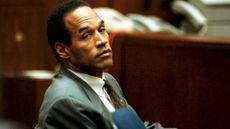Why Poor Job Interviews Hurt Both Employers and Job Seekers
An interviewer who isn’t aware of their own biases can draw the wrong conclusions about a job candidate or even get conned.


“One of the things that can lead to an employment lawsuit,” observes Southern California-based labor law attorney Jay Rosenlieb, “is a failed interview that resulted in a job offer.
“Often the ‘hiring manager’ is a long-term employee with no training in how to conduct a proper, focused interview, hired the applicant based on liking them and not on whether they could do the job, would be a good fit or had the necessary experience.”
Anna Papalia, author of the recently published Interviewology: The New Science of Interviewing, could not agree more.

Sign up for Kiplinger’s Free E-Newsletters
Profit and prosper with the best of expert advice on investing, taxes, retirement, personal finance and more - straight to your e-mail.
Profit and prosper with the best of expert advice - straight to your e-mail.
Papalia’s professional career has been devoted to teaching the art and science of employment interviews — to both employers and job applicants — helping them prepare, conduct and honestly present themselves.
I asked her to outline some of the worst ways an employment interview can be conducted and mistakes job applicants make during interviews.
1. An interviewer should not talk 80% of the time, focusing only on telling the candidate a lot of things about the job — telegraphing their needs — and then ask, “So why do you want to work here?”
Consequences: The candidate will repeat everything they just heard, giving a false impression of their competence that nonetheless impresses the interviewer. Instead, have a structured interview for all candidates, asking the same questions that have been written out in advance, rather than thinking of questions on the spot.
A hiring manager needs to determine what technical skills and personality attributes are required and present candidates with a challenging situation to see how they would handle it.
2. Both interviewers and job seekers need to guard against being swayed by someone who is like them.
Consequences: If the interviewer is a charmer — someone who wants to make a connection — they could like an applicant who is also charming and then fall prey to their personality. It could lead to being conned!
Attorney Rosenlieb points out, “Charmers can sometimes cause an inexperienced or inattentive hiring manager to discount a background check or pre-employment testing — ironically, devices that are in place, in part, to protect against charmers.”
Challengers love people who provide a new perspective, are contrarians and maintain a strong position. Examiners prefer business-minded, focused applicants who get right to the point — no fluff. Harmonizers look for an individual who is collaborative, warm and places the needs of the team above their own. They will all be swayed by someone who is like them.
3. Job seekers should never ask a hiring manager, “What’s going on in the company, and how can I help with some of the problems you’re having?”
Consequences: It’s a bad question. While challengers love tough questions, not everyone is a challenger. So if the applicant asks that question of an HR person, it risks rubbing them the wrong way, as they likely do not know the answer. You have to know to whom to direct your question.
A better approach would be along the lines of, “I’ve done my research and know you are looking to get into the XYZ market. As you can see from my résumé, I’ve done that before and would love to help you.”
4. Job seekers should absolutely never ask, “Can you describe for me the person you don’t want to hire?
Consequences: They are not going to tell you and might even think, “Why that question? Is there something off with their personality? We don’t need someone who is difficult!”
Instead, any question you ask or answer should move the interview forward so the interviewer has a good impression and sees you as qualified. So, before asking a question, ask yourself, “Will this show me as qualified? Will I appear likable? Will they be interested in talking with me more?”
Also, asking the interviewer “why?” can shut people down, but asking them “how?” helps create a more conversational situation.
5. The most inappropriate, or even illegal, questions are often asked in the small-talk portion of the interview.
Example:
Question: “Did you have any trouble finding us?”
Answer: “No trouble at all.”
Question: “Oh, where do you live?”
What if the applicant says they live an hour away? This can lead to bias, as the hiring manager might think, “I don’t want to hire someone who lives an hour away.”
Or, what if the applicant says they live in a bad neighborhood? This leads to making assumptions about people based on things that have nothing to do with the job.
Questions that go beyond the job requirements and skills necessary are generally discouraged during the interview process. The risk is that you could drift into areas that raise an inference of discrimination.
Also an issue: “My three kids go to XYZ School.”
Interviewer might think: “Do I want to hire someone with the obligations of raising three children?”
Concluding our interview, Papalia made clear the message that a job interview is not “just a getting-to-know-you date.”
“Will this person be a good fit for the job? Once they are hired, of course the doors are wide open to all sorts of discussions — but not beforehand.”
Interviewology is a true gift to employers and job seekers and perfect for graduates.
Dennis Beaver practices law in Bakersfield, Calif., and welcomes comments and questions from readers, which may be faxed to (661) 323-7993, or e-mailed to Lagombeaver1@gmail.com. And be sure to visit dennisbeaver.com.
Related Content

After attending Loyola University School of Law, H. Dennis Beaver joined California's Kern County District Attorney's Office, where he established a Consumer Fraud section. He is in the general practice of law and writes a syndicated newspaper column, "You and the Law." Through his column he offers readers in need of down-to-earth advice his help free of charge. "I know it sounds corny, but I just love to be able to use my education and experience to help, simply to help. When a reader contacts me, it is a gift."
-
 Strategies to Optimize Your Social Security Benefits
Strategies to Optimize Your Social Security BenefitsTo maximize what you can collect, it’s crucial to know when you can file, how delaying filing affects your checks and the income limit if you’re still working.
By Jason “JB” Beckett Published
-
 Don’t Forget to Update Beneficiaries After a Gray Divorce
Don’t Forget to Update Beneficiaries After a Gray DivorceSome states automatically revoke a former spouse as a beneficiary on some accounts. Waivers can be used, too. Best not to leave it up to your state, though.
By Andrew Hatherley, CDFA®, CRPC® Published
-
 Strategies to Optimize Your Social Security Benefits
Strategies to Optimize Your Social Security BenefitsTo maximize what you can collect, it’s crucial to know when you can file, how delaying filing affects your checks and the income limit if you’re still working.
By Jason “JB” Beckett Published
-
 Don’t Forget to Update Beneficiaries After a Gray Divorce
Don’t Forget to Update Beneficiaries After a Gray DivorceSome states automatically revoke a former spouse as a beneficiary on some accounts. Waivers can be used, too. Best not to leave it up to your state, though.
By Andrew Hatherley, CDFA®, CRPC® Published
-
 What’s the Difference Between a CPA and a Tax Planner?
What’s the Difference Between a CPA and a Tax Planner?CPAs do the important number crunching for tax preparation and filing, but tax planners look at the big picture and come up with tax-saving strategies.
By Joe F. Schmitz Jr., CFP®, ChFC® Published
-
 Charitable Remainder Trust: The Stretch IRA Alternative
Charitable Remainder Trust: The Stretch IRA AlternativeThe SECURE Act killed the stretch IRA, but a properly constructed charitable remainder trust can deliver similar benefits, with some caveats.
By Brandon Mather, CFP®, CEPA, ChFEBC® Published
-
 Three Ways to Take Control of Your Money During Financial Literacy Month
Three Ways to Take Control of Your Money During Financial Literacy MonthBudgeting, building an emergency fund and taking advantage of a multitude of workplace benefits can get you on track and keep you there.
By Craig Rubino Published
-
 How Did O.J. Simpson Avoid Paying the Brown and Goldman Families?
How Did O.J. Simpson Avoid Paying the Brown and Goldman Families?And now that he’s died, will the families of Nicole Brown Simpson and Ron Goldman be able to collect on the 1997 civil judgment?
By John M. Goralka Published
-
 What Not to Do if an Employee or Loved One Is Kidnapped
What Not to Do if an Employee or Loved One Is KidnappedBusinesses need to have a crisis plan in place so that everyone knows what to do and how to do it. Sometimes, calling the authorities isn’t recommended.
By H. Dennis Beaver, Esq. Published
-
 Why You Shouldn’t Let High Interest Rates Seduce You
Why You Shouldn’t Let High Interest Rates Seduce YouWhile increased interest rates are improving the returns on high-yield savings accounts, that may not be an effective place to park your money for the long term.
By Kelly LaVigne, J.D. Published